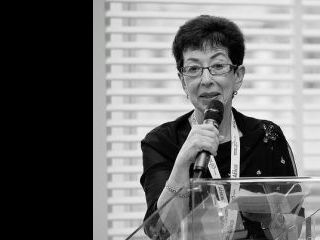Gender in the Knowledge Society Framework finds that multiple factors must be addressed before women achieve parity in the science and technology fields.
EDUCATION ALONE WON’T CLOSE KNOWLEDGE GENDER DIVIDE

In 2013, Gender in the Knowledge Society Framework will be extended to another seven countries. In the meantime we have come to some tentative conclusions. Within education there needs to be very positive encouragement for women and girls to study science and technology. However, it is not enough to concentrate on increasing girls’ access to education. Education does not stand alone. Both good health and decent social status are necessary elements in the equation. There has to be a supportive policy environment for women that covers, for starters, both health and social status, as well as conditions of work. Until flexible work hours and child care is addressed, there will continue to be few women with children who can work as research scientists. Good policies do not work without sufficient funding and implementation to back them up.
India has an excellent policy environment for women, yet India ranks the lowest overall among the countries surveyed, largely as a result of women’s low social and educational status. South Korea is another case in point with high rates of women studying science, technology and engineering but few working in the STI labor force, especially in the private sector and at decision-making levels. Its women have excellent health status and the longest life expectancy for women of any country studied, but they suffer from the lack of policy environment that takes into account women’s needs, low social status, and few participate in public life. While South Africa has a strong policy environment and the highest representation of women in government among the countries surveyed, it falls down on health, with one of the world’s highest rates of HIV/AIDS infection among women, and social status, given the legacies of apartheid. The US may need to look more deeply at Brazil as a model for encouraging and retaining women in the science, engineering and technology workforce and examine the costs of a lack of gender-aware policies.
All of this indicates that gender equality in the knowledge society is not one-dimensional. It takes all the elements we have looked at including health, social and economic status, education, political participation, and a gender-aware policy environment. Why is any of this so important? It is because gender equity is not simply a women’s cause. It is a matter of national competitiveness in an increasingly global world. If half of a country’s human resources are not effectively participating, that puts the country at a distinct disadvantage. To be most successful in the knowledge society and economy, a country needs to make it possible for all its population to take part and benefit.
This is the final part of this three-part series. To read parts one and two, visit “In Their Own Words” on our blog.